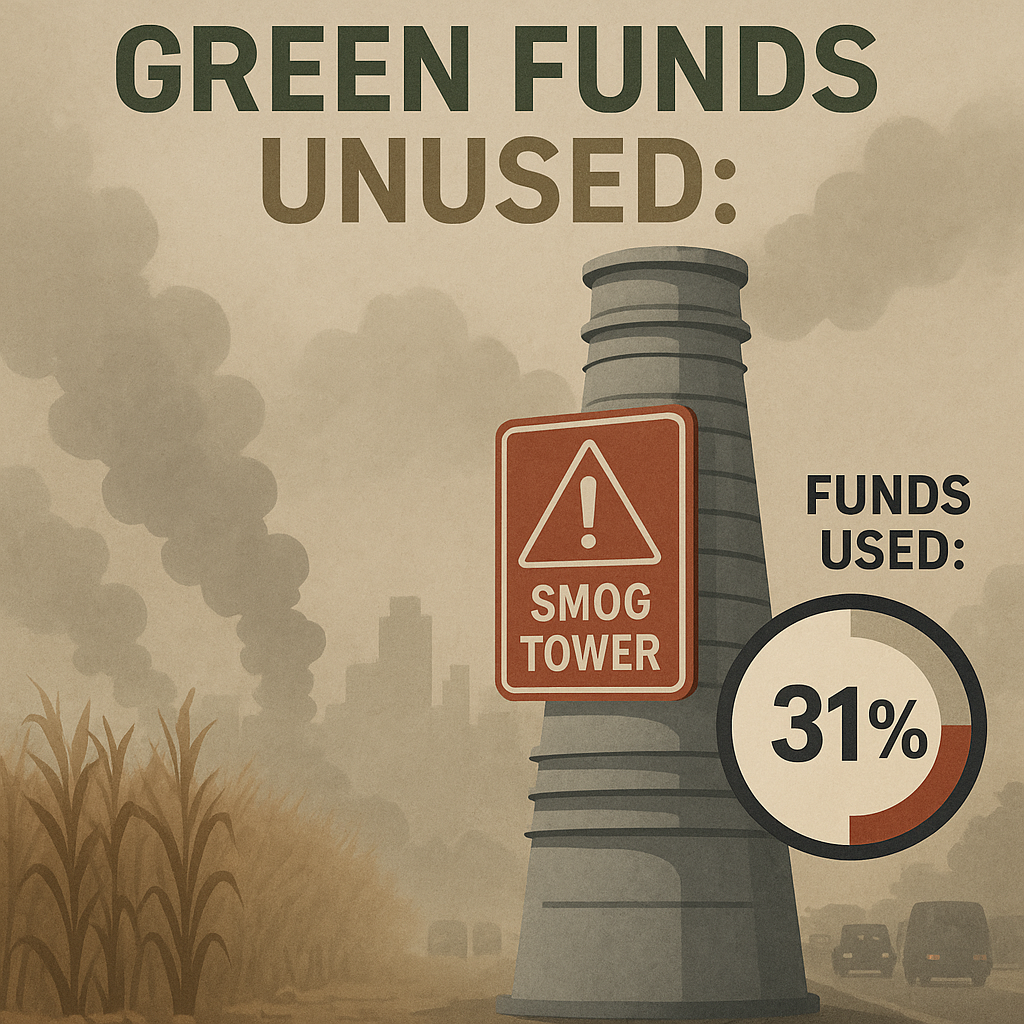New Delhi – In a revelation that underscores the persistent disconnect between policy and implementation, the Central Pollution Control Board (CPCB) has admitted to using only 31% of the Environmental Pollution Charge (EPC) collected over the past ten years in Delhi-NCR. Even more strikingly, less than 1% of the Environmental Cess (EC) gathered in eight years has been spent, revealing systemic inaction despite worsening air quality in the region.

This information came to light through Right to Information (RTI) queries filed by environmental activist Amit Gupta. As per CPCB’s official response, approximately ₹427 crore was collected under EPC between FY 2014–15 and FY 2024–25. Of this, only ₹130.9 crore was actually utilised as of March 2025. Ironically, the highest collection year (2024–25) saw ₹74.4 crore gathered, but just ₹31.9 crore spent.
The funds that were deployed were directed towards 15 projects aimed at mitigating pollution in Delhi-NCR. These included the procurement of mechanical road sweepers and anti-smog guns in cities like Noida, Ghaziabad, and Faridabad. In Noida alone, four mechanical sweepers and five anti-smog guns were approved, while Ghaziabad and Faridabad saw similar investments in hardware and urban infrastructure upgrades.
Delhi received EPC funding for the installation of a smog tower and for converting diesel generator sets in government hospitals to cleaner CNG alternatives. CPCB also allocated funds to support paddy straw pelletisation plants in Punjab and Delhi-NCR—a measure aimed at reducing stubble burning, a major seasonal contributor to the region’s toxic smog.
In contrast, the management of the Environmental Cess paints an even bleaker picture. Of the ₹45.8 crore collected over eight years, a mere ₹9 lakh was spent. Though 67 projects were reportedly approved under this fund, implementation remains abysmally low. Projects ranged from toxicology sampling by Indian Institute of Toxicology Research (IITR), Lucknow, to environmental quality testing along the Yamuna, and limited support for affected students.
“It’s not just administrative inefficiency—this is institutional environmental negligence,” said Gupta. “CPCB and state boards are sitting on crores in unspent funds even as air quality worsens. The lack of political and bureaucratic will is appalling.”
Repeated warnings from the Joint Parliamentary Committee on Environment appear to have had no impact. Despite mounting environmental challenges, the CPCB has not responded to media inquiries on its underutilisation of crucial funds.
TOI
